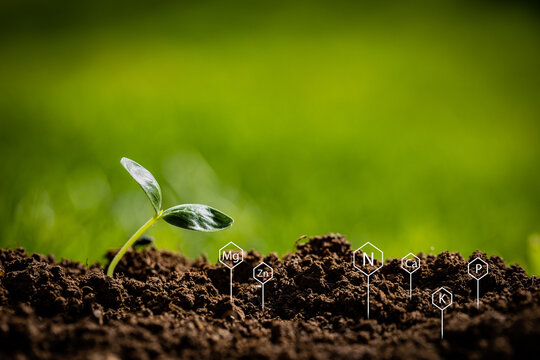Ph.D. in Crop and Soil Sciences: Introduction, Admission, Registration, Eligibility, Duration, Fees, Syllabus 2024

Introduction:
A Ph.D. in Crop and Soil Sciences delves into the intricacies of agricultural systems, focusing on crop production, soil health, and sustainable agriculture practices. This comprehensive guide explores the admission process, eligibility criteria, completion time, career prospects, syllabus overview, internship opportunities, scholarships, and FAQs relevant to aspiring scholars in this field.
Admission Process:
- Research Programs: Explore universities offering Ph.D. programs in Crop and Soil Sciences, considering faculty expertise and research focus areas.
- Application Submission: Complete online applications, including transcripts, recommendation letters, statement of purpose, GRE scores (if required), and research proposals.
- Interviews: Shortlisted candidates may undergo interviews to assess research potential, fit with the program, and alignment with faculty interests.
- Research Experience: Prior research experience in crop science, soil science, agronomy, or related fields may strengthen the application.
Eligibility:
- Educational Background: A master's degree in Crop Science, Soil Science, Agronomy, Agriculture, or related disciplines from an accredited institution.
- Academic Performance: Strong academic record, typically with a minimum GPA requirement.
- Research Experience: Demonstrated research experience through thesis work, publications, or participation in research projects.
- Field Experience: Experience in agricultural fieldwork, crop management, soil analysis, or related practical experiences may be advantageous.
Completion Time:
Ph.D. programs in Crop and Soil Sciences usually take 4 to 6 years to complete, including coursework, comprehensive exams, dissertation research, and writing. However, completion times may vary depending on research progress and individual circumstances.
Career Opportunities:
- Research Scientist: Conduct research in agricultural laboratories, universities, or research institutions, focusing on crop breeding, soil management, or sustainable agriculture practices.
- Agricultural Consultant: Provide expertise to farmers, agricultural businesses, or government agencies on crop selection, soil fertility, pest management, and environmental conservation.
- Extension Specialist: Work with agricultural extension services to disseminate research findings, provide technical assistance to farmers, and develop educational programs.
- Government Positions: Opportunities in government agencies, such as the Department of Agriculture, Environmental Protection Agency (EPA), or agricultural ministries, focusing on policy development, regulation, or research.
- Industry Positions: Careers in agricultural companies, seed companies, fertilizer manufacturers, or agribusinesses, in roles such as product development, sales, or marketing.
Syllabus:
- Crop Physiology: Study of crop growth and development processes, including photosynthesis, nutrient uptake, water use efficiency, and stress responses.
- Soil Chemistry and Fertility: Examination of soil properties, nutrient cycling, soil fertility management, soil amendments, and fertilizer application.
- Plant Genetics and Breeding: Exploration of principles of plant genetics, breeding methods, molecular breeding techniques, and crop improvement strategies.
- Sustainable Agriculture: Analysis of sustainable agriculture practices, including conservation agriculture, organic farming, agroecology, and integrated pest management.
- Dissertation Research: Independent research under the guidance of faculty advisors, focusing on a specific aspect of crop or soil science, leading to a dissertation.
Internship Opportunities:
- Agricultural Research Stations: Internships at agricultural research stations, university farms, or extension offices, assisting with research trials, data collection, and field experiments.
- Agribusiness Companies: Internships with seed companies, fertilizer manufacturers, or agricultural equipment suppliers, gaining exposure to product development, sales, or technical support.
- Government Agencies: Internships with government agencies, such as the USDA or state agricultural departments, working on agricultural policy, regulatory compliance, or research projects.
- Non-profit Organizations: Internships with non-profit organizations or NGOs focusing on sustainable agriculture, food security, or rural development initiatives, participating in field projects or community outreach.
Scholarships and Grants:
- Institutional Funding: Universities may offer graduate assistantships, fellowships, or tuition waivers to Ph.D. students in Crop and Soil Sciences.
- Government Grants: Federal agencies, such as the USDA-NIFA, may provide grants for graduate research projects in agriculture, soil science, or crop production.
- Industry Sponsorship: Agricultural companies or associations may offer scholarships or research grants to support graduate studies in crop and soil sciences.
- Professional Associations: Agricultural associations, such as the Crop Science Society of America or the Soil Science Society of America, may offer scholarships and travel grants to graduate students.
FAQs:
Can I pursue a Ph.D. in Crop and Soil Sciences with a background in a different field?
Yes, many programs welcome students from diverse academic backgrounds, including biology, environmental science, chemistry, or engineering, who demonstrate a strong interest in agricultural research.
What research areas can I explore in a Ph.D. program in Crop and Soil Sciences?
Research areas may include crop breeding and genetics, soil health and fertility, sustainable agriculture practices, precision agriculture, agroecology, or climate change impacts on agriculture.
Are there opportunities for international research or fieldwork in Ph.D. programs in Crop and Soil Sciences?
Yes, many programs offer opportunities for international collaborations, research projects, or fieldwork experiences, allowing students to gain global perspectives on agricultural challenges and solutions.
What are the typical career paths for graduates with a Ph.D. in Crop and Soil Sciences?
Graduates may pursue careers in academia, research institutions, government agencies, agricultural consulting firms, or agribusiness companies, focusing on research, extension, policy, or industry roles.
How can I prepare for a Ph.D. program in Crop and Soil Sciences during my undergraduate studies?
Focus on coursework in biology, chemistry, mathematics, and agricultural sciences, gain research experience through internships or undergraduate research projects, and develop strong communication and analytical skills.





